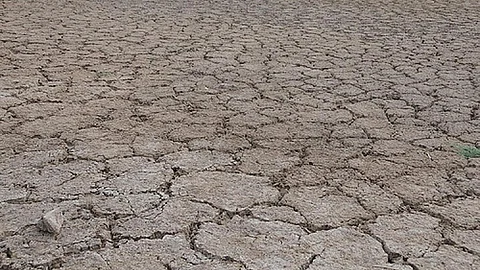
- Topics
- Feature
- Opportunities & Events
- About
- Hindi Portal
- Data
- Topics
- Feature
- Opportunities & Events
- About
- Hindi Portal
- Data

Taking note of water levels dipping in dams to a critical level, the Centre has issued a drought advisory to Maharashtra, Gujarat, Karnataka, Andhra Pradesh, Telangana and Tamil Nadu. The advisory recommends the states to use water for drinking purpose only till the dams are replenished. As per the data of the Central Water Commission (CWC), which monitors water storage available in 91 major reservoirs across the country, the total water storage available is 22 percent of the total storage capacity of these reservoirs. While in the reservoirs of the western and southern regions, where the drought advisory has been issued, the total live storage available is 13 percent of the capacity.
Nearly 180 governments have adopted the amendments regarding global trade of plastic scrap at the 14th Conference of Parties to the Basel Convention (COP-14) held in Geneva. As per the new modifications, plastic waste has been included in the legally-binding framework, so as to make global trade in plastic scrap more transparent and better regulated. The need for an amendment was perceived when the developing nations increased their restrictions against accepting plastic trash from developed nations. Now with the new mandate in place, developing countries will no longer be a dumping ground for the world’s plastic waste.
Following Haryana that has created detailed inventories of water bodies not protected by any law, the National Green Tribunal (NGT) has ordered all the states and Union territories (UTs) to review their existing framework for restoration and submit action plans to the Central Pollution Control Board (CPCB) within three months. The CPCB has also been directed to publish guidelines to restore water bodies—between 0 and 2.5 acres in size—not presently protected by any national legislation in a month's time. The order has come after several concerned authorities in Haryana mapped the water bodies in the state, along with assigning them unique identification numbers.
The Central Pollution Control Board (CPCB) has directed Haryana to ensure augmentation of sewage treatment plants (STPs) in industrial cities of Yamunanagar, Panipat and Sonipat districts. The board took note of the industrial and domestic wastewater being discharged in the Yamuna river through ditch drains and observed that there is a need to augment the capacity of STPs and laying down of sewerage system at Yamunanagar and Sonipat. In the Panipat city, however, the sewage conveyance system needs to be augmented for 100 percent utilisation of the existing treatment facility.
Under the provisions of the Forest (Conservation) Act, 1980, when a piece of forest land is diverted for non-forestry purposes like mining or infrastructure, an equal area of revenue land or non-forest land or double the area of degraded forest land has to be used for compensatory afforestation. However, the Forest Advisory Committee (FAC) has now decided that the states with more than 75 percent forest cover won’t be required to provide non-forest land for forest diversion projects. Moreover, the FAC has instead recommended to the environment ministry to allow the compensatory afforestation in other states deficient in forest land.
This is a roundup of important policy matters from May 15 - 21, 2019. Also, read news this week.